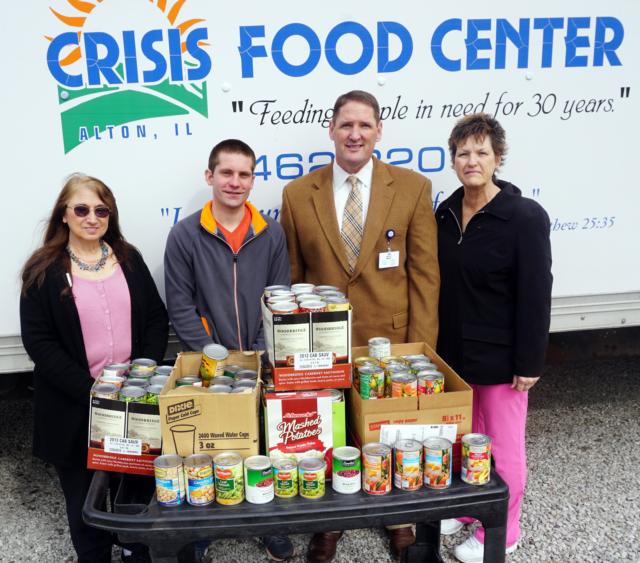
Kelly Rulison
Copy Editor
If you’re hungry, check out FoodPantries.org. It’s a website that organizes local food banks based on location and specific reasons that people need them. Students can use these for the assistance they need.
For example, there are specific food banks that are for ‘children and single mothers’ or ‘low income housing.’ They also have food banks for people who are on unemployment benefits, need food stamp assistance, medical assistance, and dental assistance.
“Most often, clients ask for information on other area food banks when they visit Crisis Food Center. Many are often experiencing emergencies where their families need as much help as they can get and we provide the names and contact information for other food pantries, including Community Hope and Operation Blessing,” Associate English Professor and Vice President of the Crisis Food Center Board of Directors, Jeremy Griggs, said.
Veteran students can make use of this opportunity as well.
“Several veteran students a semester ask about various community services that might be available to assist them. Food bank questions are included in those,” Career and Veteran Services Director, Terry Lane said.
“Veterans would be eligible or ineligible in the same way as any other applicant based on the individual food bank criteria,” Lane continued.
The first step to finding local food banks is by going to FoodPantries.org and selecting the state of residence. After that scroll down a little to find the search bar that says ‘search by city’ above it.
After clicking search, a page will appear with a list of the closest food banks in the area that the website knows of. It offers the name of the food bank, their address and website link, city and state location, their phone number, their hours of operation, and even distance from other locations as shown on a map.
“Crisis Food Center requires no income verification to receive food; we feed everyone. We only require clients to bring proof of residence for all members of their family. Clients can come once a month to receive a five-day supply of nutritionally balanced food. We also provide access to gently used clothing in the Nearly New Shop, which is located in the basement of our building,” Griggs said.
Under all of that information is a link to a page that gives even more information about that food bank, like information about donations or volunteer work. Some of these food banks even have social media pages that offer help and information.
“If the help involves food or clothing, I give them information about Crisis Food Center services. If additional assistance (shelter, for example) is needed, I refer them to our campus counselor, Renee Bauer,” Griggs said.
For more information on local food banks go online to FoodPantries.org or contact Jeremy Griggs at jgriggs@lc.edu. For Veteran Services, contact Terry Lane at tdlane@lc.edu.



